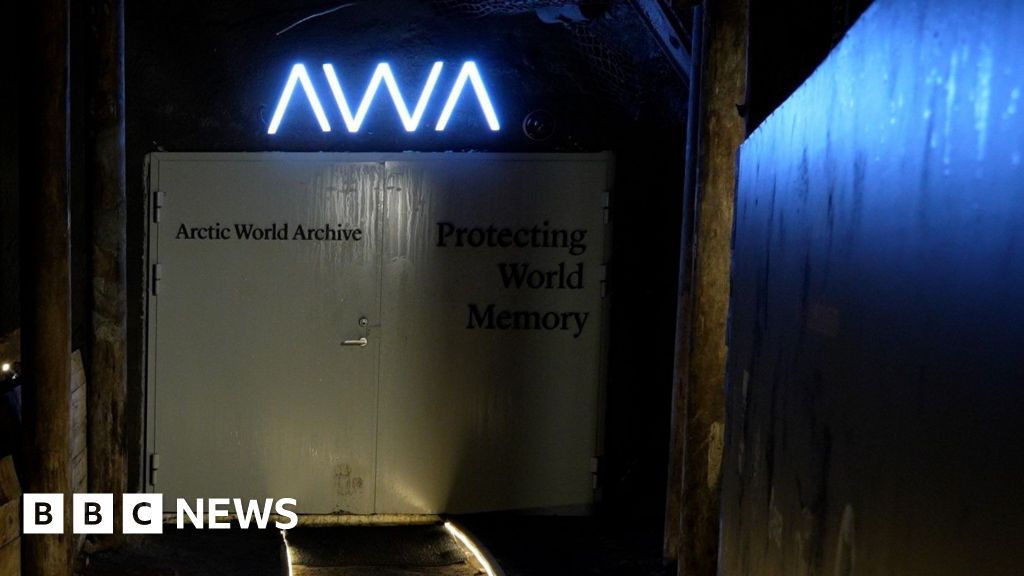ARTICLE AD BOX
By Sarah Dickins
BBC News
Tata Steel says it needs a route map from the UK government before it decides how it will make steel in the future.
There are fears the steel industry, as the biggest single emitter of CO2 in the UK, might not fit into a new greener economy and thousands of jobs could be lost.
That would damage communities in Port Talbot, Newport, Llanelli and Shotton.
The UK government said it was supporting the steel industry.
Tata Steel has already reduced its emissions and said it wants to go much further but has not yet worked out how.
It said the industry alone could not solve the emissions problem and there had to be a partnership with government.
A range of options are available to steelmakers, including using hydrogen, electric furnaces or carbon capture.
Tata Steel employs 6,600 people in Wales on wages that are, on average, 36% higher than the UK average.
There has been concern about jobs and questions about the firm's future because of its impact on the environment.
Tata Steel's sustainability spokesman Martin Brunnock said: "There's no point us saying we won't make steel in the UK because that doesn't solve your carbon problem.
"All we do then is import carbon through our borders in finished goods or coils of steel to be used in the UK."
'A route map would be really helpful'
Image source, Getty Images
Image caption, Tata Steel, in Port Talbot, is one of the UK's biggest emitters of climate-warming gasesAt the Port Talbot steelworks, carbon dioxide emissions have already been reduced by recycling scrap steel back into the liquid steel.
Tata said 20% of its scrap steel now goes back into the system and every 1% extra of scrap recycled reduces the plant's carbon emissions by 150,000 tonnes a year.
But it needs to do more than that to reach its target.
"We can't do this alone. How do you get an energy infrastructure, hydrogen infrastructure, how do you create that carbon capture technology, how does that all work?" Mr Brunnock said.
He added "revolutionary" policies were needed and "a route map would be really helpful".
There are concerns that changes to the way steel is made - to make it greener - could result in thousands of job losses .
'Steel's at the heart of this community'
Tata Steel employee Jaqueline Thomas said there had been a "lack of empathy" over the impact of changes to the economy on areas such as hers.
"I myself travel down from Tredegar in Blaenau Gwent and we lost Ebbw Vale steelworks in 2002 and we've seen how the economy has changed, how it's hit the area I live in," she said.
"Not just me but Redcar is the same and how the community has become deprived, lack of jobs - and what can we do?
"There's obviously a lack of empathy as well with the younger generation because they get very much disorientated about where their future lies and we've got to make sure that the steel industry survives for the young apprentices that also travel down here on a daily basis.
"I'd hate to see the steel industry shrink to a point where the community involvement is no longer there. There has always been a massive camaraderie amongst the communities... steel has always been at the heart of this community."
Customers want greener steel
It is not about a future lack of demand. Tata Steel believes that the amount of steel used in the UK will increase by 10% by 2030 and many renewable energy projects and low carbon transport systems will rely on it.
Already more than two-thirds of the steel it makes stays in the UK.
Steel made at the Port Talbot plant goes into car production, food packaging, construction and even used to make walls that can generate electricity.
Many of its customers want steel that is made in such a way that it has less impact on the environment.
It is expected that will increase as companies will have to publish the impact of their supply chain on emission levels.
The industry is already struggling with energy prices rising steeply and competition from overseas.
The UK government's Department for Business, Energy & Industrial Strategy said: "We are already working closely with Britain's steel sector to support its transition to a low carbon future.
"We have previously announced a £250m clean steel fund to support the industry to reduce carbon emissions, and our industrial decarbonisation strategy sets out how it can be done in a way that prevents industrial activity from being outsourced overseas and supports competitiveness, jobs and clean growth."

 3 years ago
93
3 years ago
93








 English (US) ·
English (US) ·